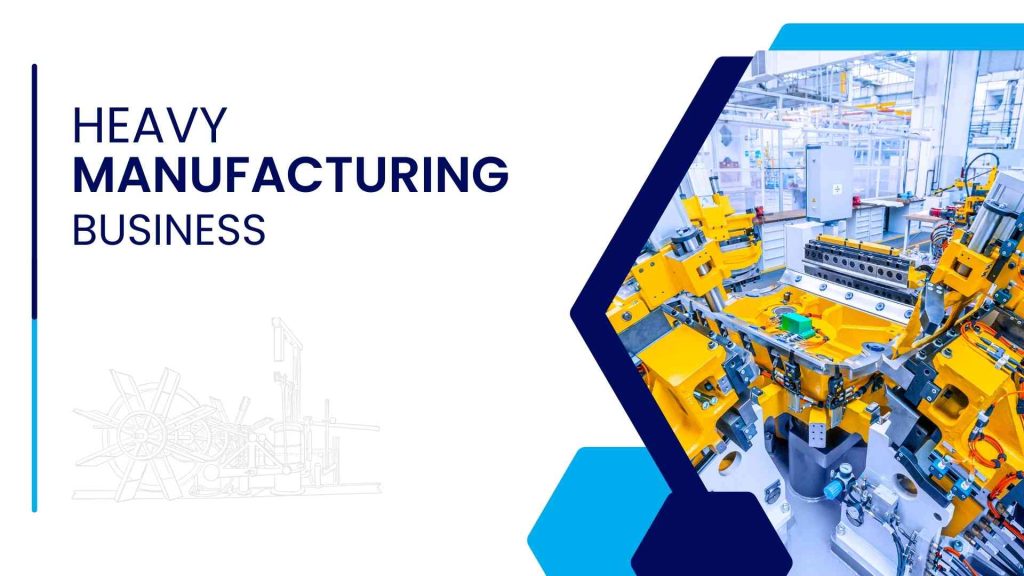The heavy manufacturing industry is critical in producing the machinery, equipment, and infrastructure required for various sectors, including construction, automotive, aerospace, and energy. However, this industry faces numerous challenges within its supply chain that can impact operational efficiency, cost-effectiveness, and overall competitiveness. We will delve into some of the most significant supply chain challenges heavy manufacturing businesses face and explore strategies to overcome them.
Supply Chain Challenges in Heavy Manufacturing
Complexity and Scale
Heavy manufacturing involves intricate processes, large-scale operations, and diverse components. The complexity arises from managing multiple suppliers, coordinating various processing, and ensuring quality control at every stage. This complexity can lead to delays, inefficiencies, and increased risk of errors.
Globalization
Many heavy manufacturing businesses source components and raw materials worldwide to optimize costs and access specialized expertise. However, global supply chains are susceptible to geopolitical disruptions, trade regulations, and logistical complexities that can disrupt the flow of materials and parts.
Demand Variability
Fluctuations in demand, whether due to economic shifts or seasonality, can create challenges in production planning and inventory management. Overstocking leads to excess costs while understocking results in missed opportunities and delayed deliveries.
Supplier Reliability
Heavy manufacturing relies heavily on a network of suppliers. A single unreliable supplier can disrupt the entire production process. Maintaining a consistent flow of high-quality materials and parts is essential for meeting production targets and maintaining product quality.
Quality Control
Maintaining quality standards is paramount in heavy manufacturing to ensure the safety and reliability of the end products. Ensuring consistent quality across various suppliers and production stages can be challenging.
Logistics and Transportation
The transportation of large and heavy components requires specialized logistics. Delays, damages, or disruptions during transit can lead to costly downtimes and production delays.
Rising Costs
Fluctuations in raw material prices, energy costs, and labor expenses can significantly impact the profitability of heavy manufacturing businesses. Managing and mitigating these cost fluctuations is crucial.
Strategies to Overcome Supply Chain Challenges
Advanced Technology Adoption
Embrace technologies such as IoT (Internet of Things) for real-time tracking of assets and inventory, AI (Artificial Intelligence) for demand forecasting, and ERP systems for seamless coordination of various processes. These technologies enable better visibility, decision-making, and risk management.
Supplier Collaboration
Develop strong relationships with key suppliers. Collaborative planning, shared information, and open communication can help manage disruptions effectively and find mutually beneficial solutions.
Diversification of Suppliers
Reducing reliance on a single supplier by diversifying your supplier base can mitigate the risk of disruptions caused by a single point of failure. However, this must be balanced with maintaining high standards of quality.
Lean Principles
Implement lean manufacturing principles to optimize processes, eliminate waste, and reduce lead times. It can enhance production efficiency and responsiveness to changes in demand.
Risk Management
Develop a robust risk management strategy that identifies potential disruptions and outlines contingency plans. It includes strategies for mitigating the impact of geopolitical issues, natural disasters, and market fluctuations.
Quality Management Systems
Implement rigorous quality control measures throughout the supply chain. Regular audits, inspections, and certifications ensure that all components and processes meet the required standards.
Sustainable Practices
Consider sustainable practices not only for environmental benefits but also for building a more resilient supply chain. Sustainability can lead to cost savings and improved relationships with environmentally conscious customers.
Local Sourcing
Where feasible, consider sourcing materials and components locally. It can reduce lead times, transportation costs, and exposure to international supply chain disruptions.
Scenario Planning
Develop scenario-based strategies to anticipate various supply chain disruptions. You can respond more effectively to unexpected events by preparing for multiple scenarios.
Continuous Improvement
Regularly assess your supply chain processes and performance. Encourage a culture of continuous improvement to identify bottlenecks and implement solutions that enhance efficiency and agility.
The heavy manufacturing industry faces complex and multifaceted supply chain challenges that require a strategic and proactive approach to overcome by adopting advanced technologies, nurturing supplier relationships, implementing lean principles, and embracing risk management strategies. Heavy manufacturing businesses can enhance operational resilience, decrease expenses, and keep their competitive edge in a dynamic global market.
Acumatica cloud ERP for a heavy manufacturing business is a transformative solution that addresses and enhances supply chain challenges within the heavy manufacturing sector by seamlessly integrating various aspects of the supply chain, from production planning and procurement to inventory management and distribution. Acumatica ERP empowers heavy manufacturing companies to optimize their processes and reach new levels of efficiency.
The platform facilitates informed decision-making through real-time data analytics and insights, allowing agile adjustments to market demands and production fluctuations. Its capability to facilitate communication and collaboration among different departments, suppliers, and stakeholders fosters a synchronized workflow, reducing delays and minimizing bottlenecks.
Additionally, the system’s robust automation capabilities expedite routine tasks and enhance accuracy, thereby reducing the risk of errors and ensuring compliance with industry regulations. The comprehensive visibility provided by Acumatica Cloud ERP ensures that supply chain managers can proactively identify potential disruptions, enabling timely risk mitigation strategies.
Acumatica ERP emerges as a game-changer in heavy manufacturing supply chains, offering a holistic solution that boosts operational resilience, drives cost savings, and ultimately positions companies to thrive amidst the complexities of today’s manufacturing landscape. Are you looking for a Customized ERP solution for a Heavy Manufacturing Business? Contact us for a demo.

Vijay comes with a vast experience in ERP and enterprise solutions space with about 20 years of experience in various packaged application like Acumatica, SAP, Orion, Salesforce.com, SugarCRM and, SalesLogix.

